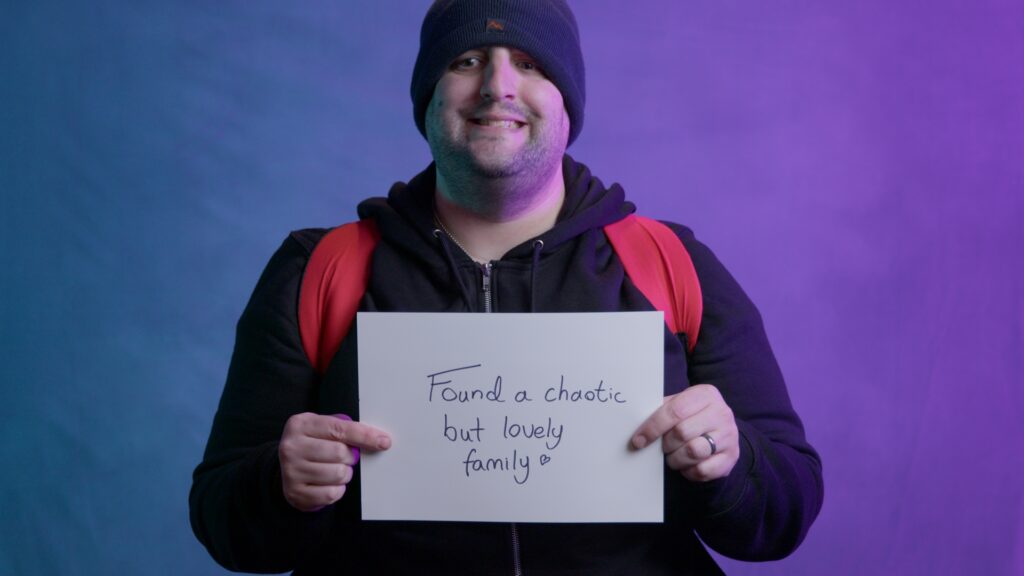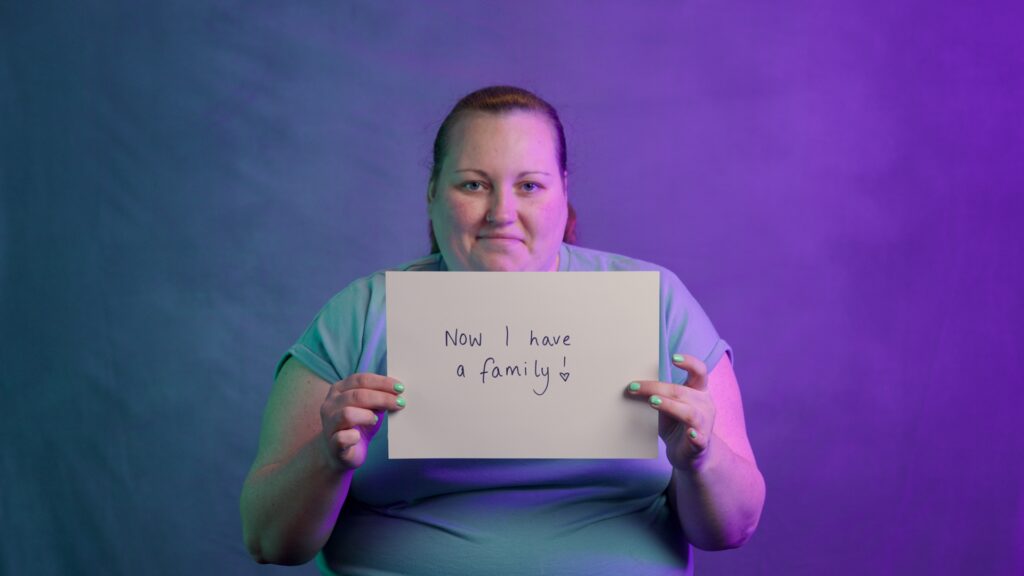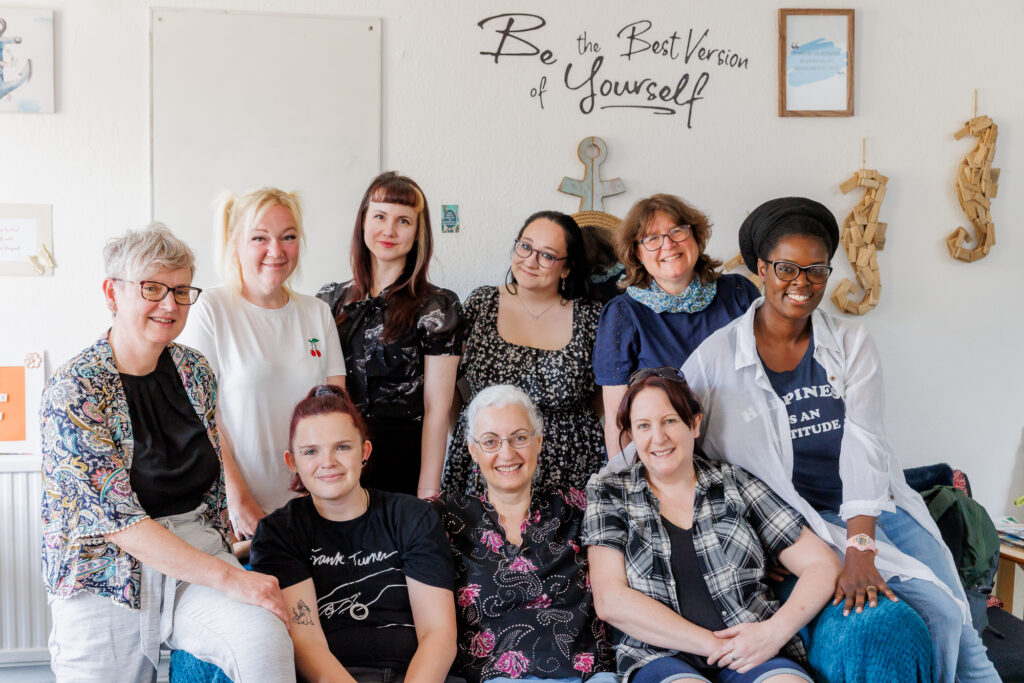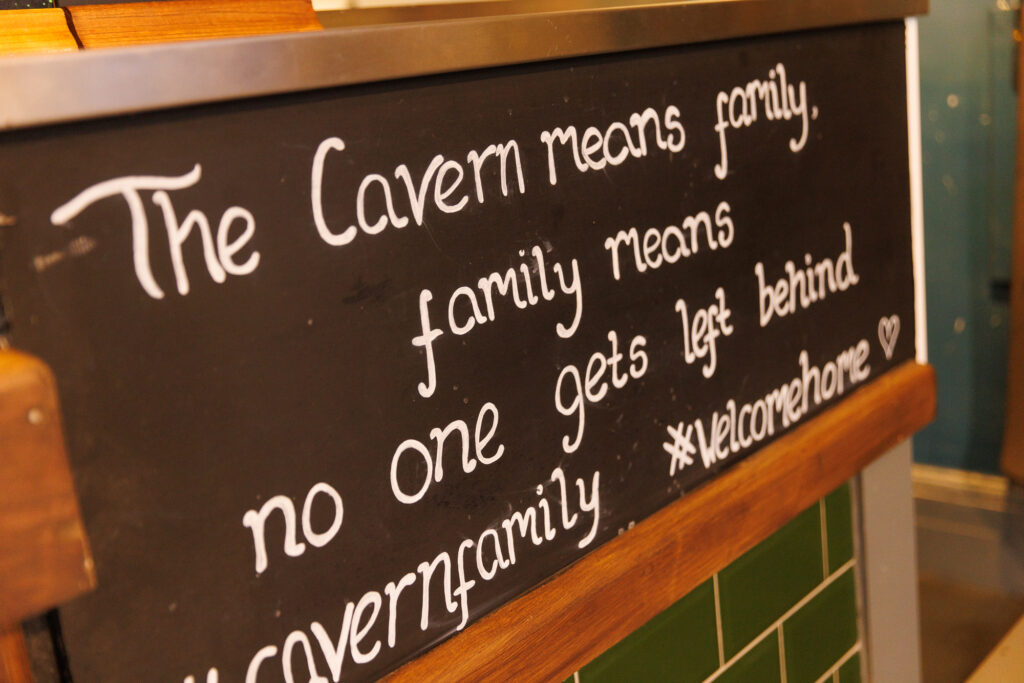At Treasure Seekers, and alongside our partners in health, social care, and criminal justice, we often talk about the need for change—whether it’s improving health outcomes, changing life circumstances, or shifting attitudes in society. But one of the most powerful tools for real transformation is often overlooked in system meetings and multi-disciplinary team discussions: grace.
While grace is a familiar concept in Christian circles, it’s rarely talked about outside of that context. But grace doesn’t need to be tied to religion—it’s a simple yet profound force. It’s about responding to others with empathy, patience, and compassion, especially when things are tough. In environments where people are often judged or labelled, grace is choosing to see beyond the mistakes and challenges. It’s about recognising our shared humanity and believing that no one is beyond hope or the potential to change.


What Is Grace?
Grace, at its heart, is kindness—given freely, even when it’s not necessarily earned. It’s about approaching situations and people with an open mind and a willingness to understand. In practice, grace could look like being patient when someone’s having a hard time, forgiving mistakes, and recognising that everyone has the ability to grow and change.
But grace isn’t about excusing bad behaviour or ignoring issues. It’s about creating space for change to happen. It’s believing that people are not stuck in their circumstances—whether that’s because of illness, trauma, or even a criminal past. Grace is about giving people the opportunity to heal, redeem themselves, and get a fresh start.
Grace as a Tool for Transformation
True transformation—whether it’s recovering from illness, improving your life, or reintegrating into society—takes more than just a plan or treatment. It requires belief: belief that people can change, and that they deserve the chance to change. This is where grace comes in. When we approach others with grace, we create the emotional and mental space needed for real transformation.
In health care, for example, a patient recovering from a long-term illness might feel discouraged or frustrated. A professional who treats them with grace acknowledges these feelings and responds with compassion, not just medical treatment. In social care, grace is essential when working with individuals who have been through trauma or hardship. Social workers who offer grace by listening without judgment create a trusting environment where people are more likely to engage with their own recovery.
In the criminal justice system, grace plays an equally important role. Often, the focus is on punishment, but grace shifts that focus to rehabilitation and redemption. Many people in the system have faced trauma, poverty, or addiction. When we approach them with grace—seeing them as more than their mistakes, past or circumstances—we give them a chance to rebuild their lives and become part of society again.
The Role of Relationships in Grace
Grace works through the connections between people. Whether in a community, a clinic, a care home, or a prison, grace is about building relationships based on trust, empathy, and understanding.
For someone in recovery or reintegrating into society, the relationships they build with professionals are key. A health care worker who takes the time to connect with a patient, showing kindness as well as expertise, can make a huge difference in the patient’s mindset. Similarly, a probation officer who believes in someone’s ability to change, rather than seeing them as just an ex-offender, can play a vital role in that person’s journey.
These relationships go both ways. When we offer grace, we also benefit from the trust and openness that come with it. When people feel supported and understood, they’re more likely to engage fully in their own transformation—and this makes our work more meaningful and rewarding.
In many cases, the presence of grace in these relationships breaks down emotional barriers like shame, guilt, or fear of being judged. Instead, it creates a space where people feel safe to be vulnerable, make mistakes, and try again.
The Long-Term Impact of Grace
Grace doesn’t just help people in the short term—it has long-lasting effects. Imagine someone who’s struggled with addiction for years finally finding a care provider who meets them with understanding rather than blame. That shift could be the turning point in their recovery, leading to long-term sobriety and a more stable, healthier life.
Grace isn’t just about offering a moment of kindness; it’s about investing in someone’s long-term potential. It’s believing that even those who have made serious mistakes or are facing the hardest battles can change with the right support and opportunities.





Practising Grace in Professional Settings
For those of us working in high-stress environments, grace can sometimes feel like a luxury. But it’s precisely in these moments where grace can have the greatest impact. Here’s how we can integrate grace into our professional lives:
- Listen without judgment – When people feel heard, they’re more likely to trust and engage in their own transformation.
- Be patient – Change takes time, and setbacks are part of the journey.
- See potential, not problems – Everyone has the capacity to grow. By focusing on potential rather than just limitations, we help foster that growth.
- Foster hope – Believing in someone’s ability to change helps them believe in themselves.
- Support each other – Leaning on colleagues and sharing the responsibility for grace fosters a stronger, more supportive community.
Grace and the Professional: Showing Grace to Yourself
For those of us working in health, social care, and criminal justice, offering grace to others begins with showing grace to ourselves. The work we do is deeply meaningful, but it can also be challenging and emotionally draining. Practising grace in professional settings requires emotional resilience, self-compassion, and an awareness of our own limits.
Recognising Compassion Fatigue
Compassion fatigue can creep in when we give so much to others that we leave little for ourselves. Acknowledging when we feel emotionally depleted is not a sign of weakness—it’s a step towards self-care. By prioritising our own wellbeing, we replenish our reserves of grace, ensuring we can continue to offer it to those we support.
Focusing on the Whole Journey
Transformation is rarely a linear process. People will have setbacks, but grace reminds us to focus on the broader journey rather than the missteps. This perspective helps maintain hope and prevents discouragement in the face of challenges.
Collective Grace
Grace is powerful not just as an individual practice, but as a collective effort. In Gloucestershire, we want to kickstart a movement where grace is at the heart of how we work together. When professionals across sectors—health, social care, criminal justice, and beyond—embrace grace as a shared value, it creates a ripple effect. By fostering an environment of collective grace, we amplify its impact, making systemic transformation possible.
Final Thoughts
Grace may be quiet, but its power is undeniable. It transforms relationships, unlocks potential, and creates the conditions needed for lasting change. When we choose to approach others—and ourselves—with grace, we offer more than just care: we offer hope. And in that hope lies the potential for true transformation.
At Treasure Seekers, and with our partners in health, social care, and criminal justice, we believe grace is key to turning a difficult moment into an opportunity for growth. It reminds us that no matter the struggles, everyone deserves the chance to have a fresh start, new hope, and a brighter future.






